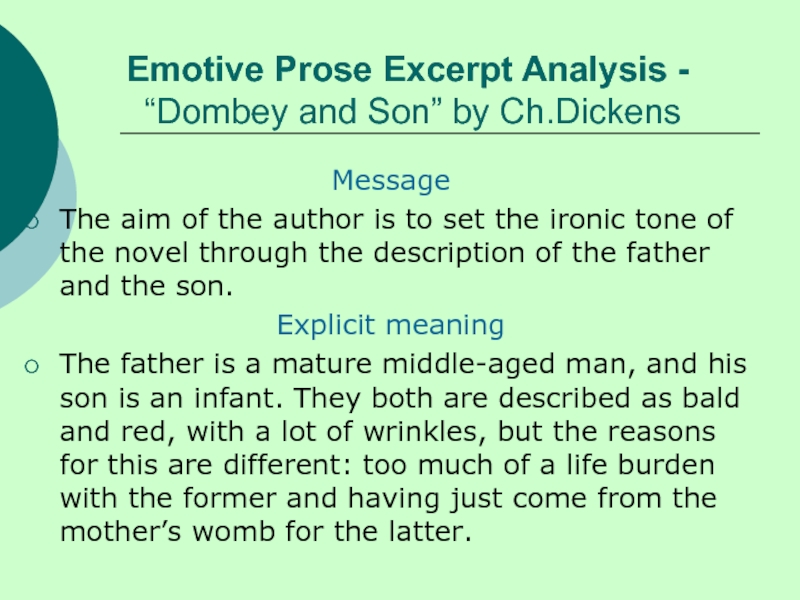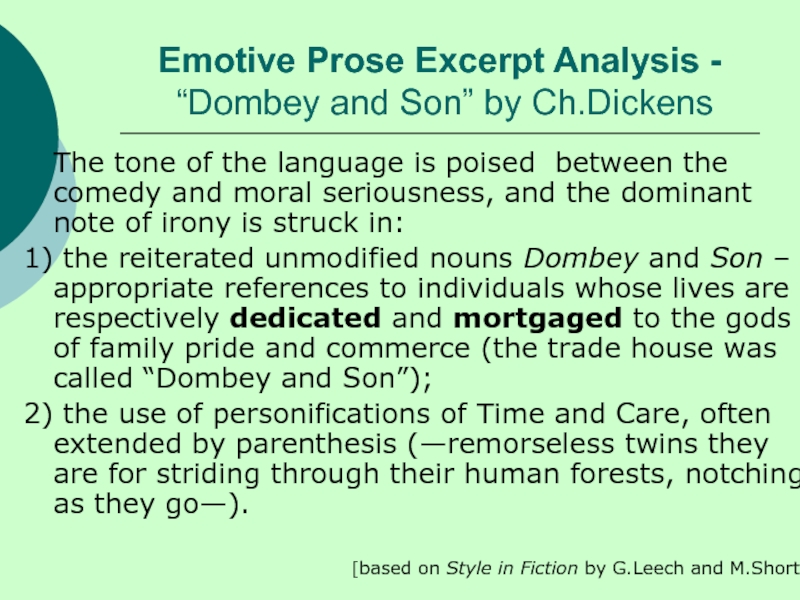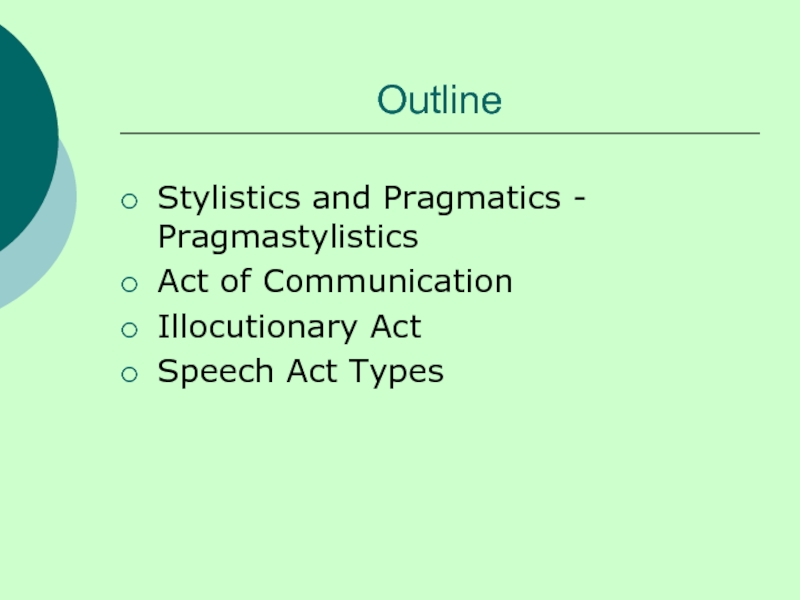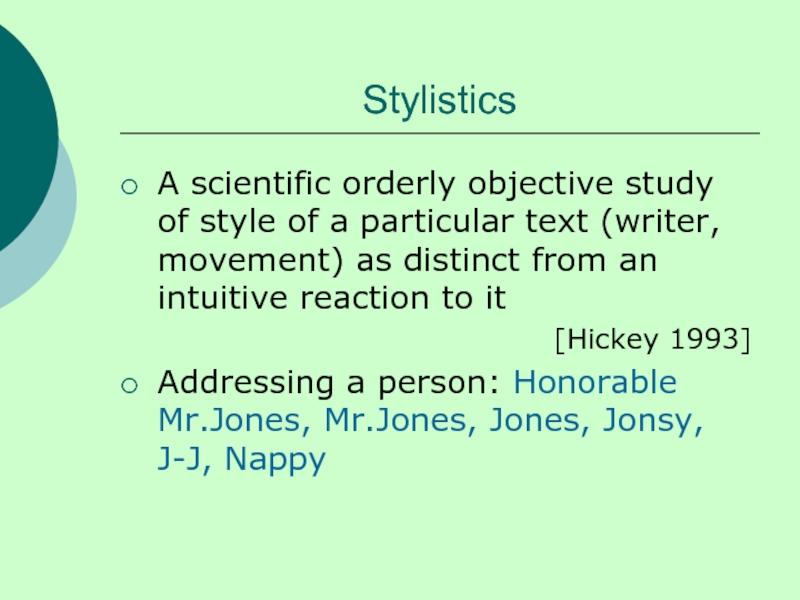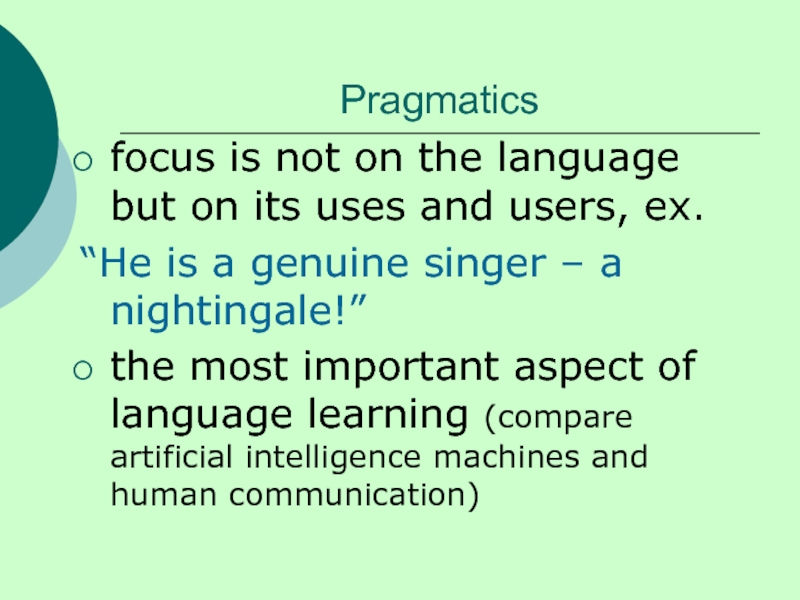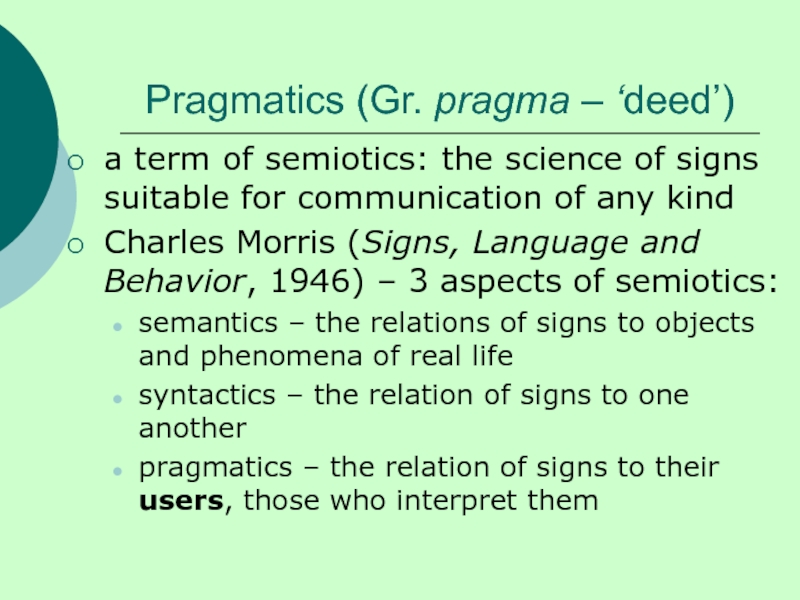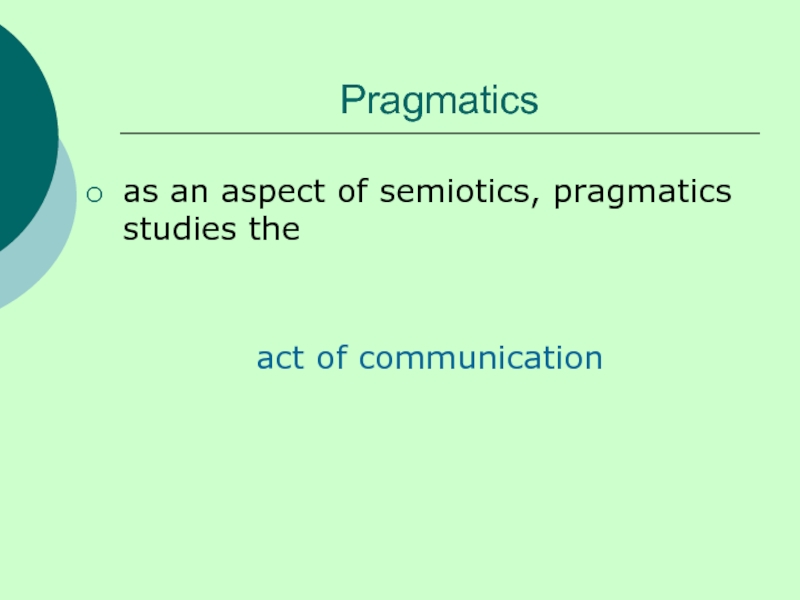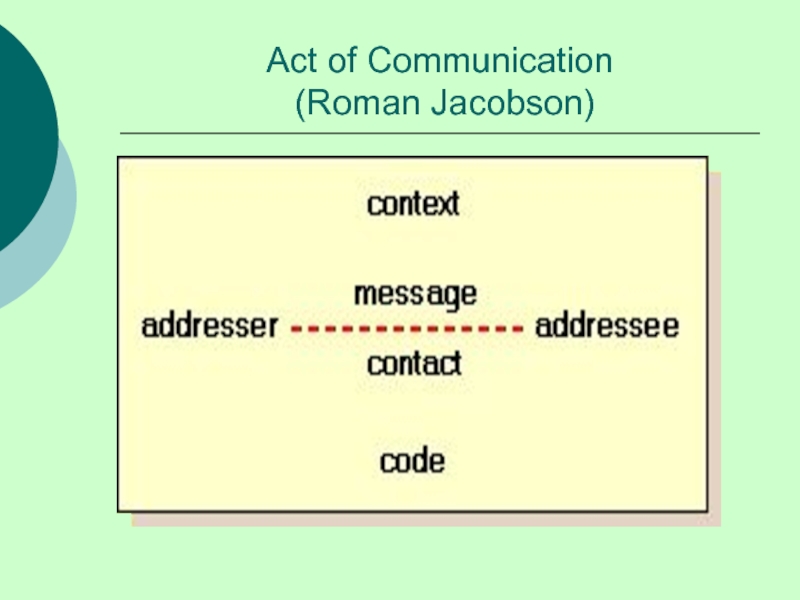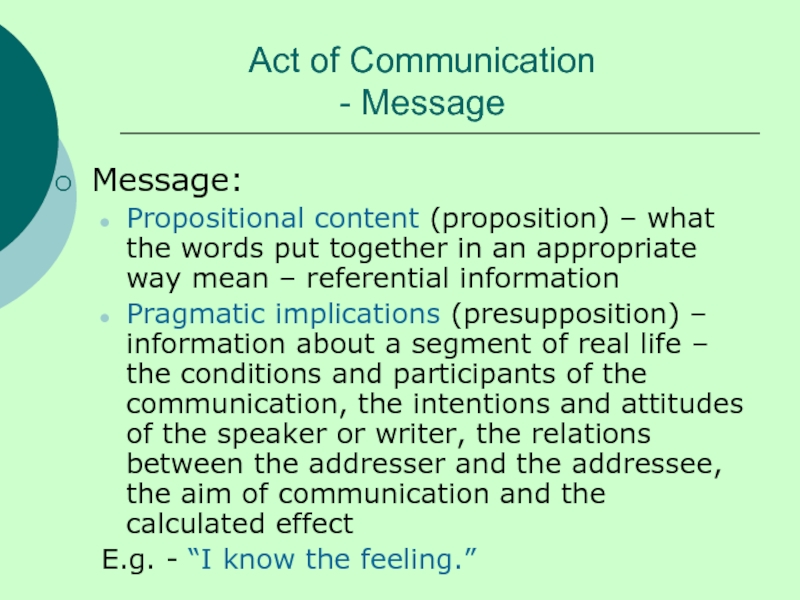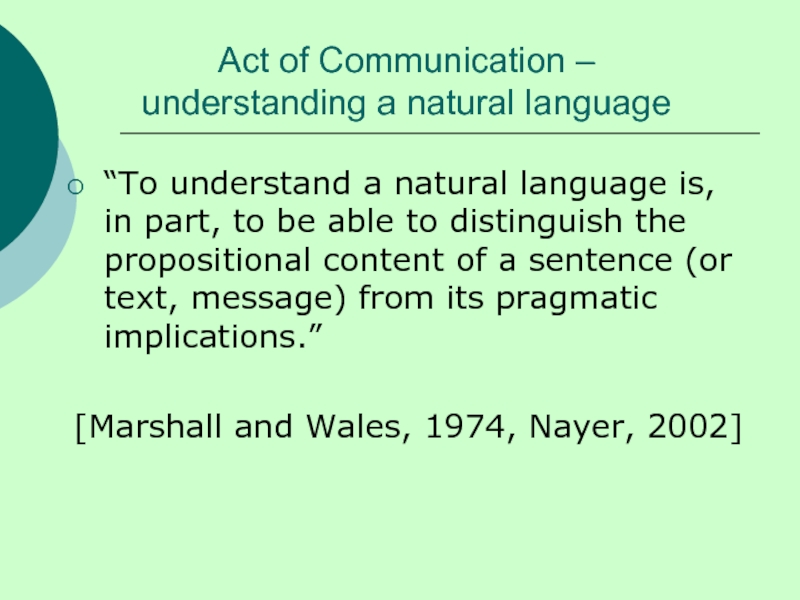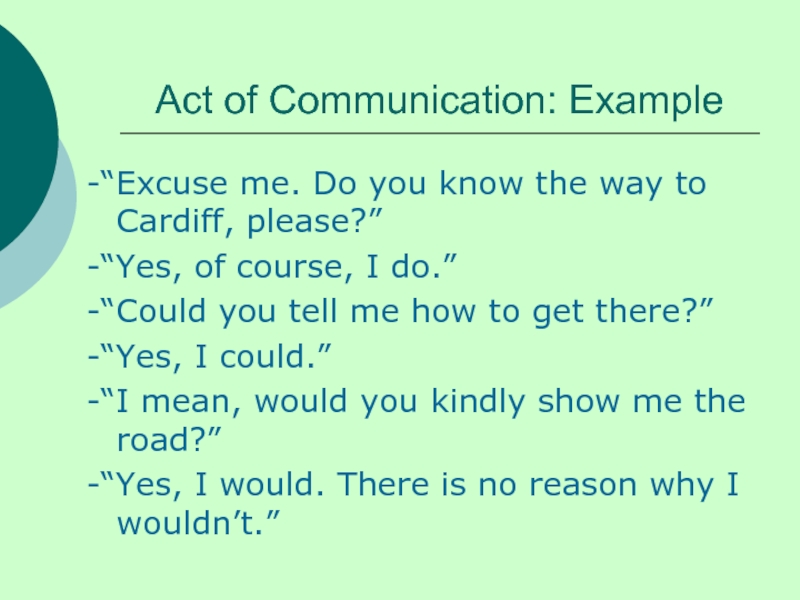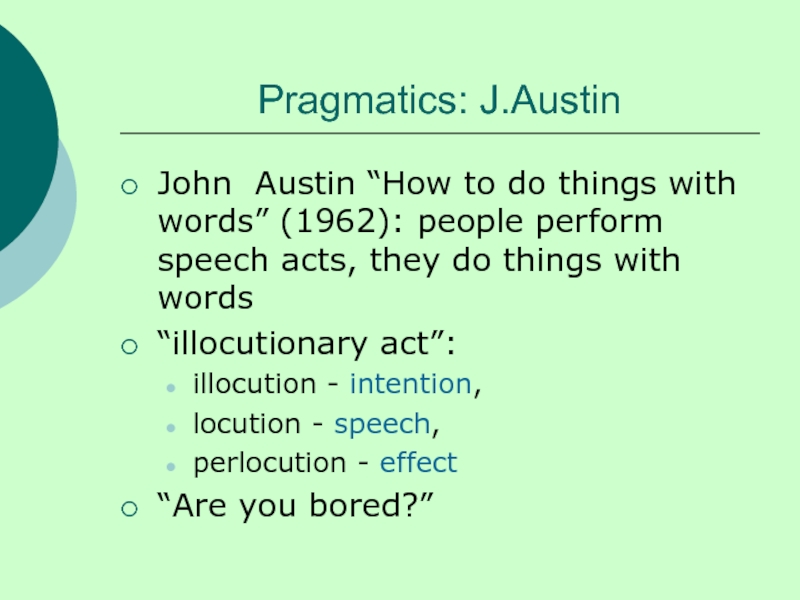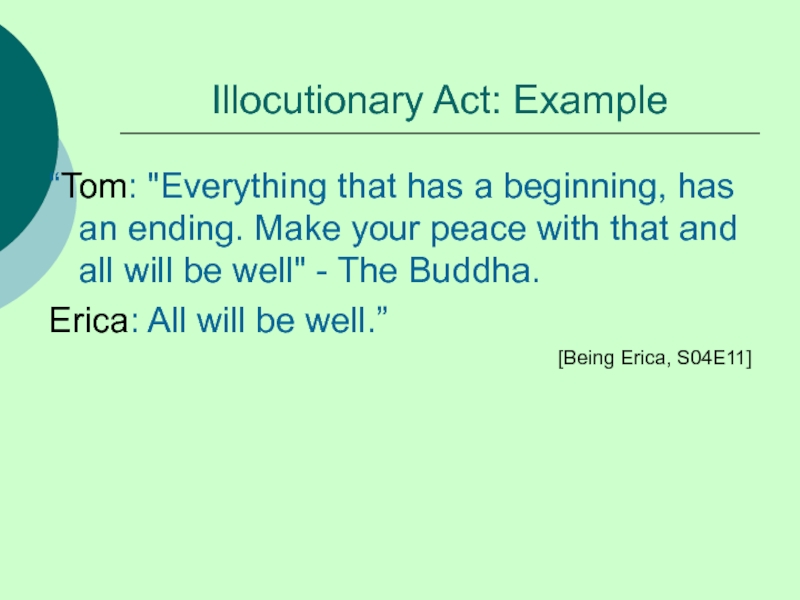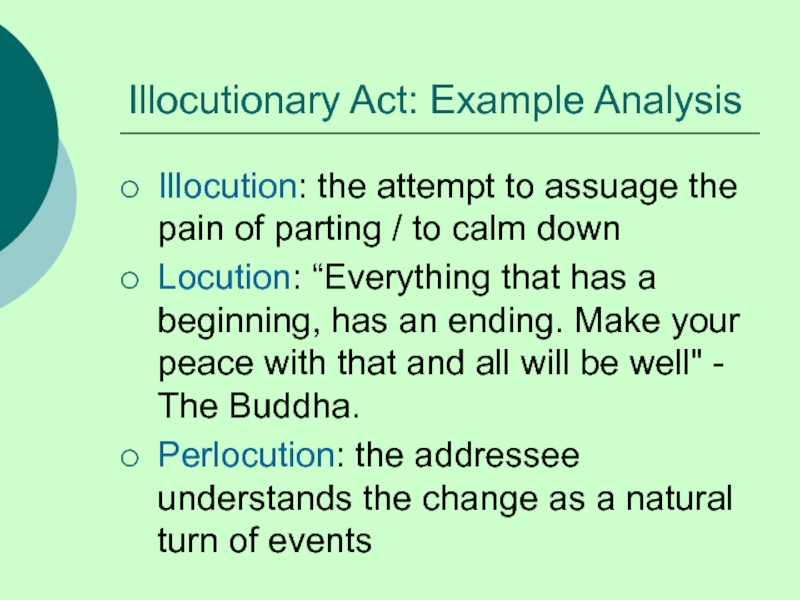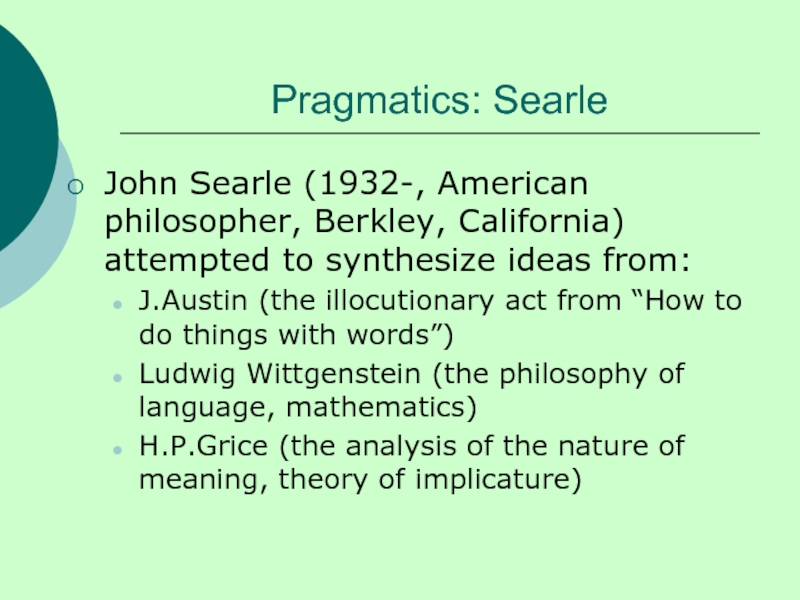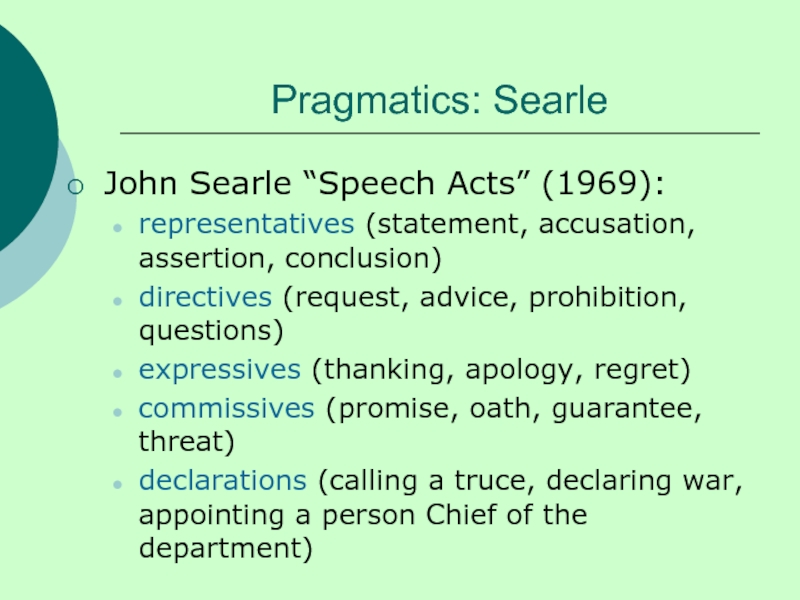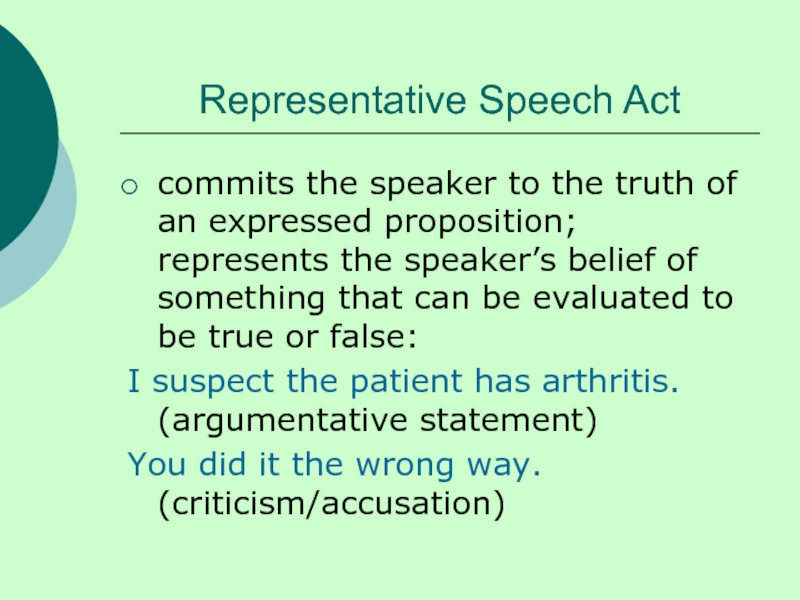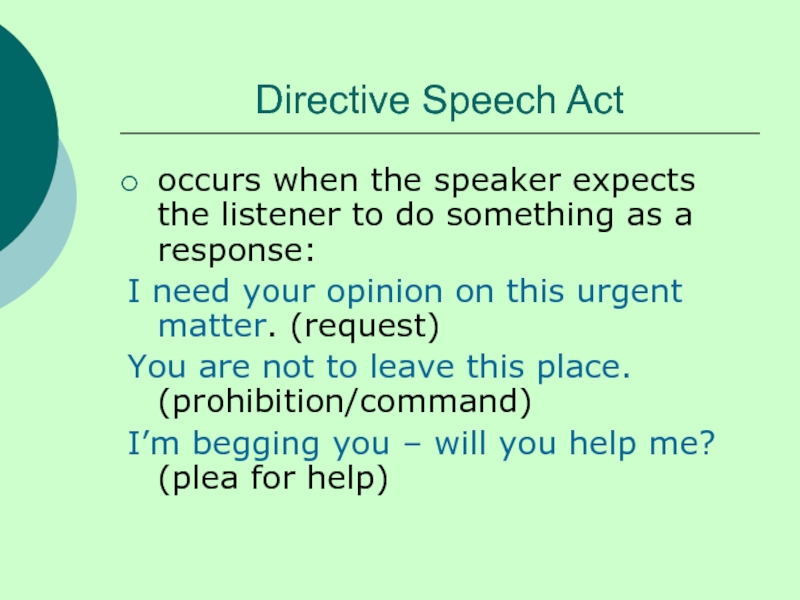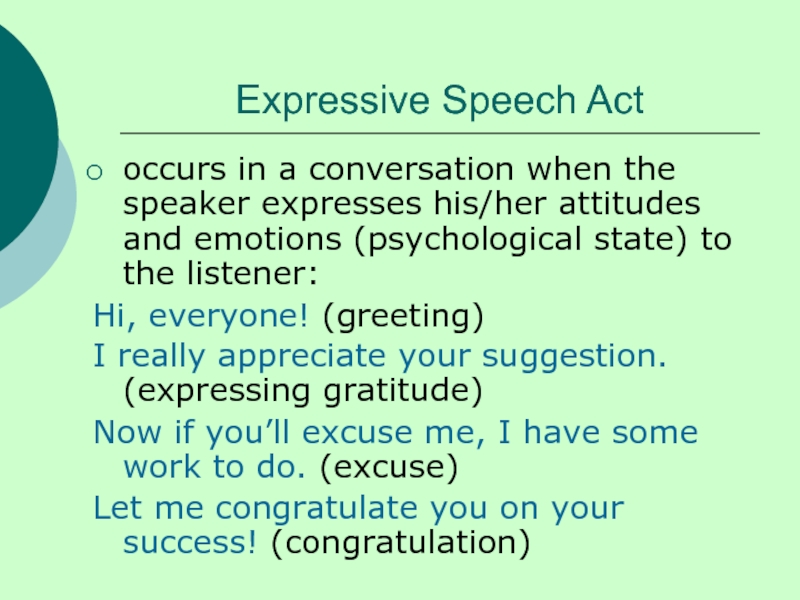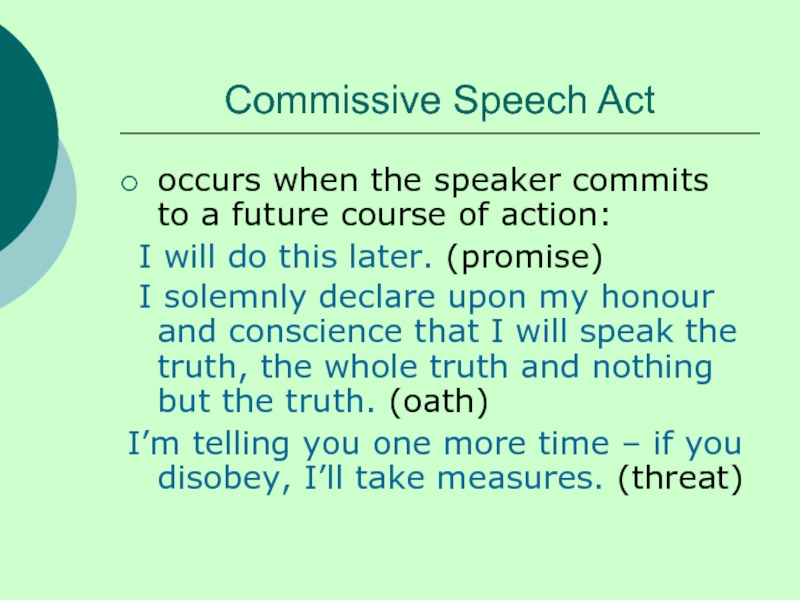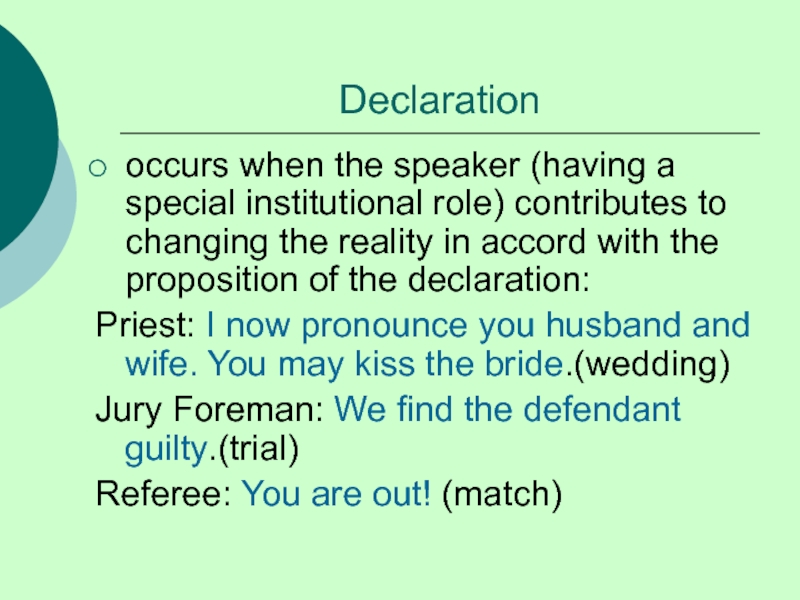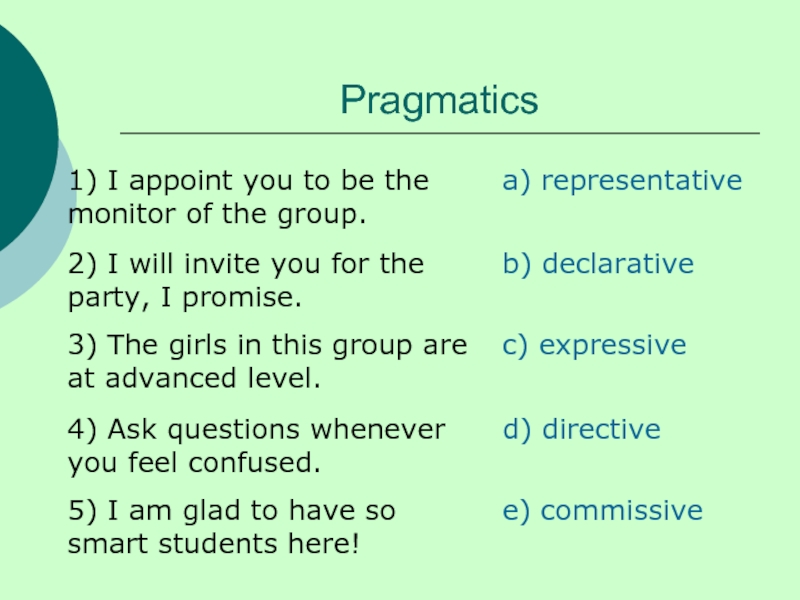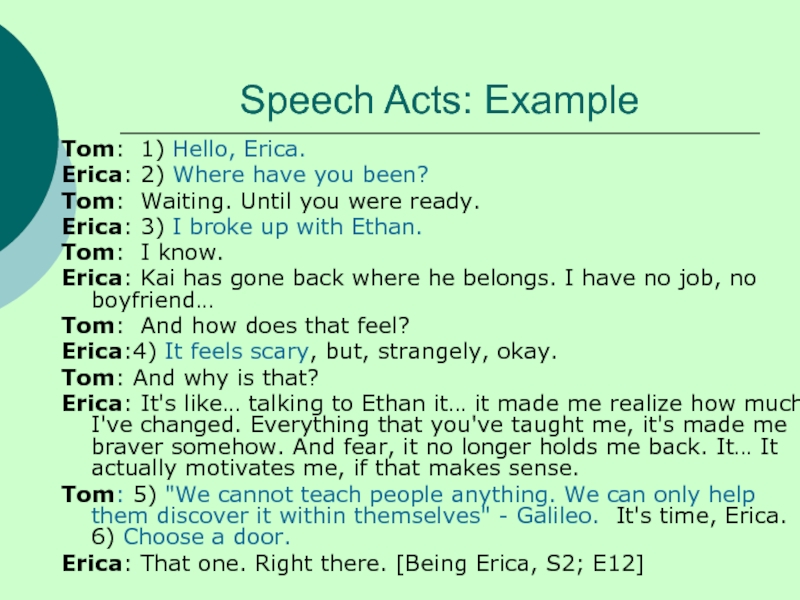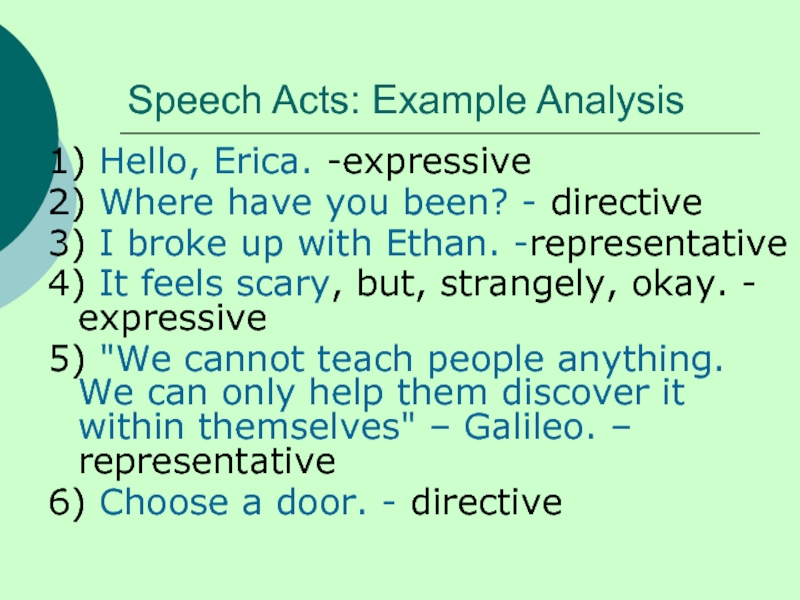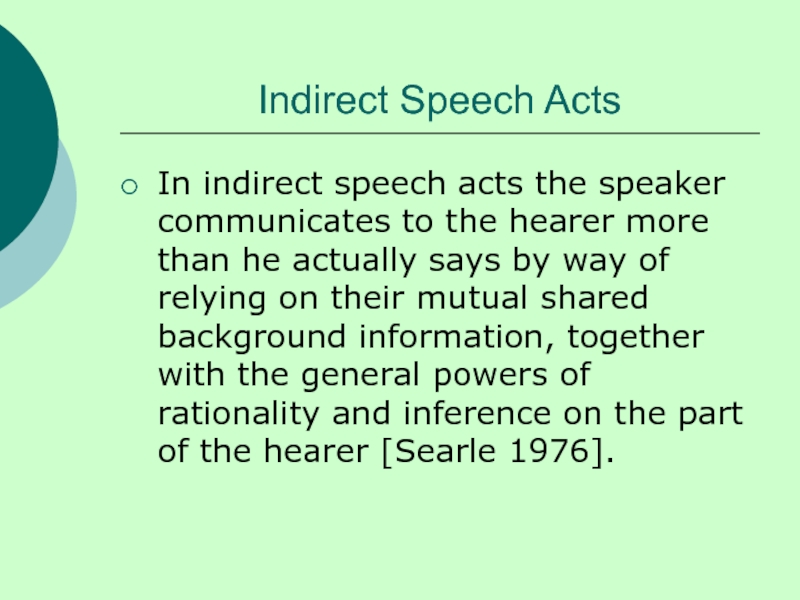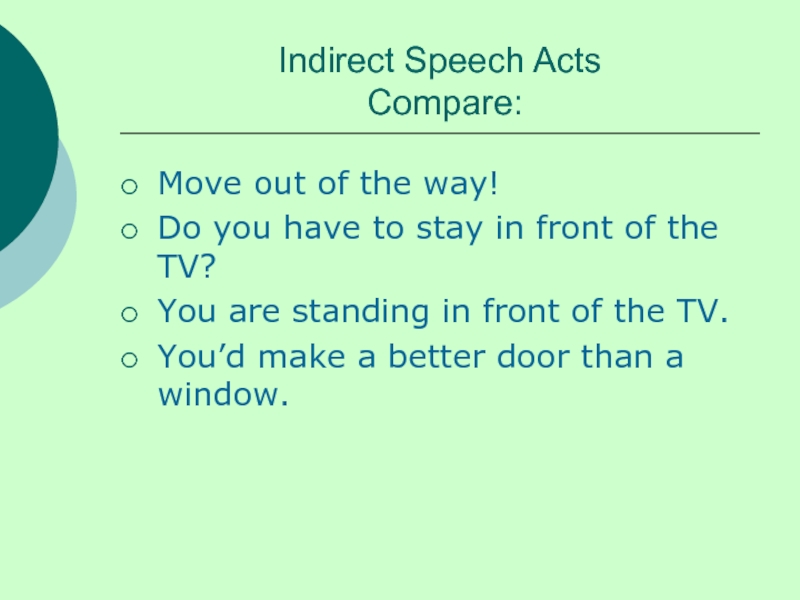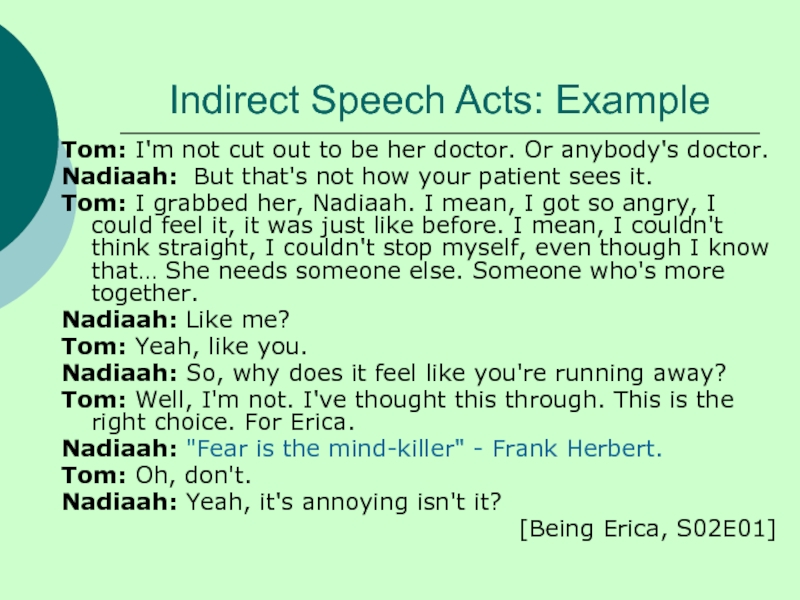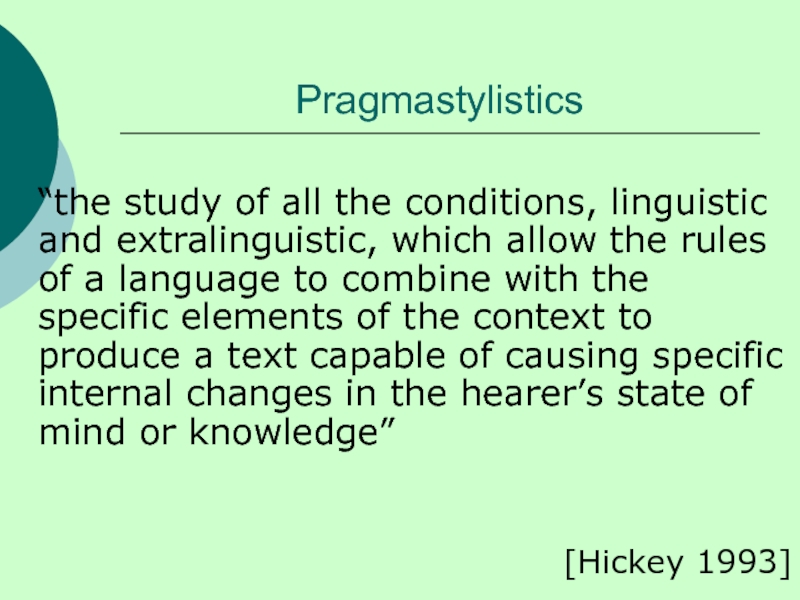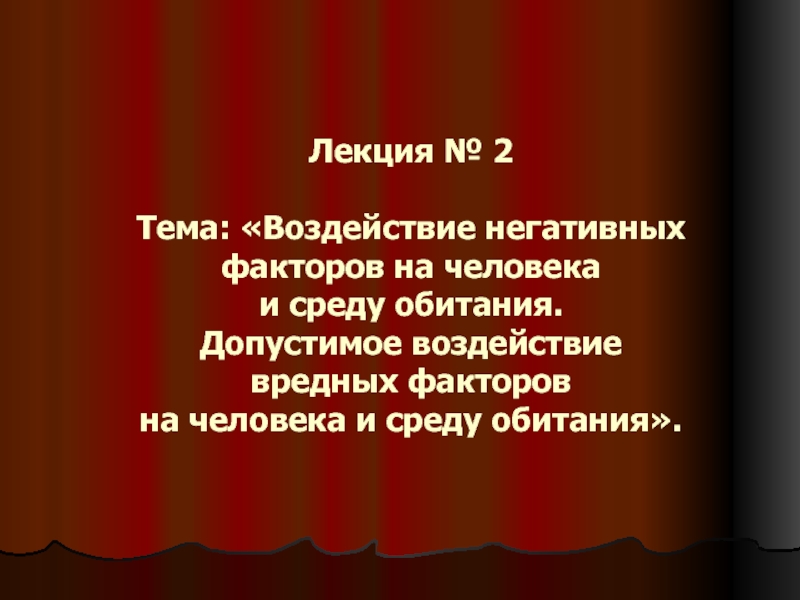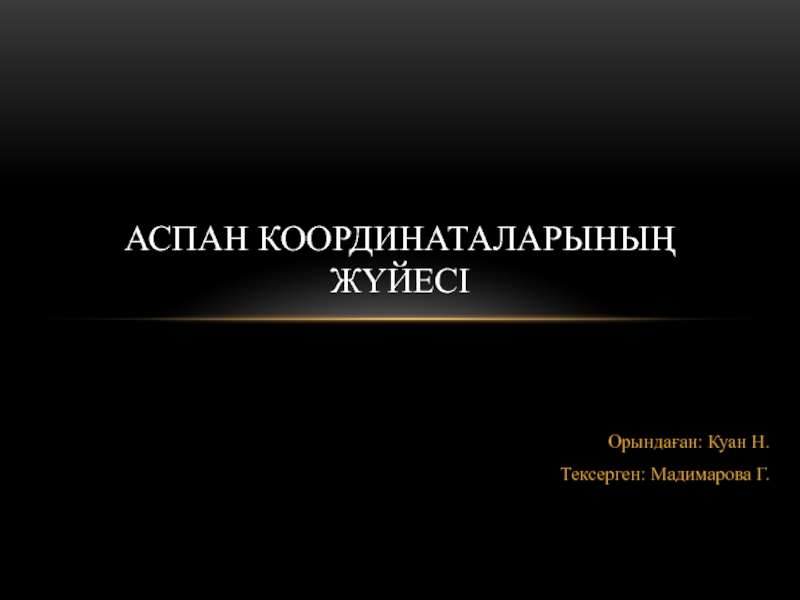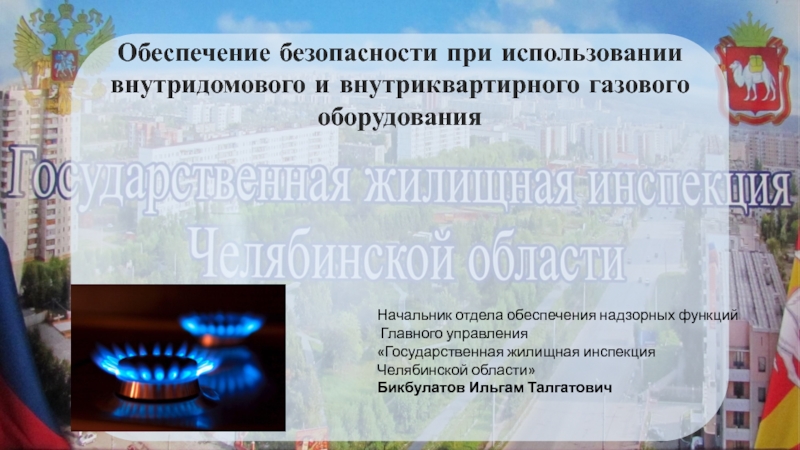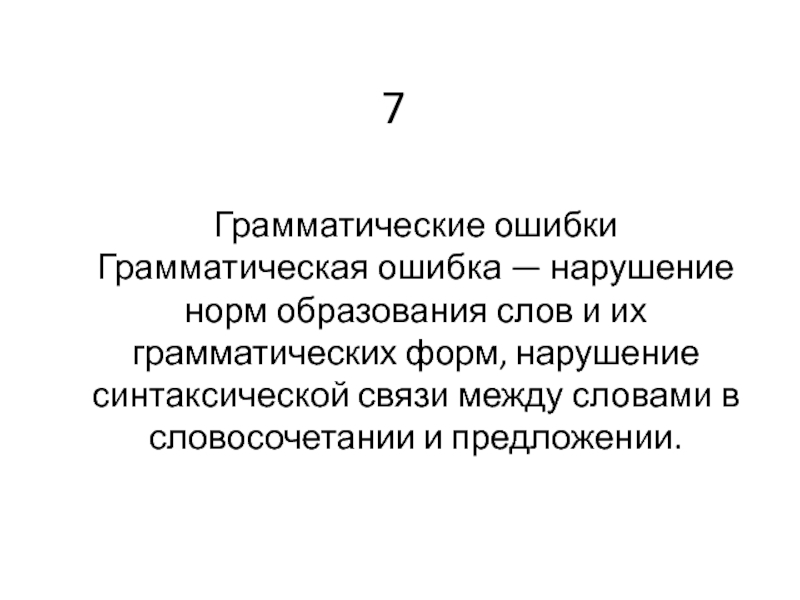Разделы презентаций
- Разное
- Английский язык
- Астрономия
- Алгебра
- Биология
- География
- Геометрия
- Детские презентации
- Информатика
- История
- Литература
- Математика
- Медицина
- Менеджмент
- Музыка
- МХК
- Немецкий язык
- ОБЖ
- Обществознание
- Окружающий мир
- Педагогика
- Русский язык
- Технология
- Физика
- Философия
- Химия
- Шаблоны, картинки для презентаций
- Экология
- Экономика
- Юриспруденция
Stylistics of the English Language 13 Koroteeva Valentina Vladimirovna,
Содержание
- 1. Stylistics of the English Language 13 Koroteeva Valentina Vladimirovna,
- 2. Emotive Prose Excerpt Analysis -
- 3. Emotive Prose Excerpt Analysis -
- 4. Emotive Prose Excerpt Analysis -
- 5. OutlineStylistics and Pragmatics - PragmastylisticsAct of CommunicationIllocutionary Act Speech Act Types
- 6. StylisticsA scientific orderly objective study of style
- 7. Pragmaticsfocus is not on the language but
- 8. Pragmatics (Gr. pragma – ‘deed’)a term of
- 9. Pragmaticsas an aspect of semiotics, pragmatics studies the act of communication
- 10. Act of Communication (Roman Jacobson)
- 11. Act of Communication - ContextVerbal context
- 12. Act of Communication - MessageMessage:Propositional content
- 13. Act of Communication – understanding a
- 14. Act of Communication: Example-“Excuse me. Do you
- 15. Pragmatics: J.AustinJohn Austin “How to do things
- 16. Illocutionary Act: Example“Tom: "Everything that has a
- 17. Illocutionary Act: Example AnalysisIllocution: the attempt to
- 18. Pragmatics: SearleJohn Searle (1932-, American philosopher, Berkley,
- 19. Pragmatics: SearleJohn Searle “Speech Acts” (1969):representatives (statement,
- 20. Representative Speech Actcommits the speaker to the
- 21. Directive Speech Actoccurs when the speaker expects
- 22. Expressive Speech Actoccurs in a conversation when
- 23. Commissive Speech Actoccurs when the speaker commits
- 24. Declarationoccurs when the speaker (having a special
- 25. Pragmatics
- 26. Speech Acts: ExampleTom: 1) Hello, Erica.Erica: 2)
- 27. Speech Acts: Example Analysis1) Hello, Erica. -expressive2)
- 28. Indirect Speech ActsIn indirect speech acts the
- 29. Indirect Speech Acts Compare:Move out of
- 30. Indirect Speech Acts: ExampleTom: I'm not cut
- 31. Pragmastylistics“the study of all the conditions, linguistic
- 32. Thank you for your attention??
- 33. Скачать презентанцию
Emotive Prose Excerpt Analysis - “Dombey and Son” by Ch.Dickens MessageThe aim of the author is to set the ironic tone of the novel through the description of the
Слайды и текст этой презентации
Слайд 1Stylistics of the English Language 13 Koroteeva Valentina Vladimirovna, valentina.shilova77@gmail.com
Слайд 2Emotive Prose Excerpt Analysis - “Dombey and Son” by
Ch.Dickens
Message
The aim of the author is to set the
ironic tone of the novel through the description of the father and the son.Explicit meaning
The father is a mature middle-aged man, and his son is an infant. They both are described as bald and red, with a lot of wrinkles, but the reasons for this are different: too much of a life burden with the former and having just come from the mother’s womb for the latter.
Слайд 3Emotive Prose Excerpt Analysis - “Dombey and Son” by
Ch.Dickens
Principles of Balance and Contrast
Each element of Mr.Dombey’s description is
balanced against a similar element of the description of Paul. The balance is achieved with the help of grammatical parallelism:sentences 1 and 2– S+V+PrPh;
sentences 3 and 4 – S+V+Adj+[though+Adj+N (positive remark)] + Adj (negative remark),
sentence 5 - Adverbial of place+S+V + clause of comparison [ Obj+S+V] +WHILE + S+V+prep+Obj+which+S+V…
Also, the balance is strengthened by lexical repetition – eight and forty, bald, red, handsome well-made/undeniably fine, on the brow of Dombey/the countenance of Son, Time and Care/deceitful Time.
Against the balance of the description, we see the contrast foregrounded by means of antithesis – years/minutes, rather bald/very bald, too stern and pompous/crushed and spotty, to come down in good time/a preparation of the surface – the author may have used it to highlight the idea that they belong to two different generations, yet they share the same fortune.
Слайд 4Emotive Prose Excerpt Analysis - “Dombey and Son” by
Ch.Dickens
The tone of the language is poised between the comedy
and moral seriousness, and the dominant note of irony is struck in:1) the reiterated unmodified nouns Dombey and Son – appropriate references to individuals whose lives are respectively dedicated and mortgaged to the gods of family pride and commerce (the trade house was called “Dombey and Son”);
2) the use of personifications of Time and Care, often extended by parenthesis (—remorseless twins they are for striding through their human forests, notching as they go—).
[based on Style in Fiction by G.Leech and M.Short]
Слайд 5Outline
Stylistics and Pragmatics - Pragmastylistics
Act of Communication
Illocutionary Act
Speech Act
Types
Слайд 6Stylistics
A scientific orderly objective study of style of a particular
text (writer, movement) as distinct from an intuitive reaction to
it[Hickey 1993]
Addressing a person: Honorable Mr.Jones, Mr.Jones, Jones, Jonsy, J-J, Nappy
Слайд 7Pragmatics
focus is not on the language but on its uses
and users, ex.
“He is a genuine singer – a nightingale!”
the
most important aspect of language learning (compare artificial intelligence machines and human communication)Слайд 8Pragmatics (Gr. pragma – ‘deed’)
a term of semiotics: the science
of signs suitable for communication of any kind
Charles Morris (Signs,
Language and Behavior, 1946) – 3 aspects of semiotics:semantics – the relations of signs to objects and phenomena of real life
syntactics – the relation of signs to one another
pragmatics – the relation of signs to their users, those who interpret them
Слайд 11Act of Communication
- Context
Verbal context – text or speech
surrounding an expression (word, sentence, speech act)
Social context –
objective social variables (class, gender, age, race, space) that are instrumental at construing/interpreting a social identity in text and conversational discourse Слайд 12Act of Communication
- Message
Message:
Propositional content (proposition) – what the
words put together in an appropriate way mean – referential
informationPragmatic implications (presupposition) – information about a segment of real life – the conditions and participants of the communication, the intentions and attitudes of the speaker or writer, the relations between the addresser and the addressee, the aim of communication and the calculated effect
E.g. - “I know the feeling.”
Слайд 13Act of Communication –
understanding a natural language
“To understand a
natural language is, in part, to be able to distinguish
the propositional content of a sentence (or text, message) from its pragmatic implications.”[Marshall and Wales, 1974, Nayer, 2002]
Слайд 14Act of Communication: Example
-“Excuse me. Do you know the way
to Cardiff, please?”
-“Yes, of course, I do.”
-“Could you tell me
how to get there?”-“Yes, I could.”
-“I mean, would you kindly show me the road?”
-“Yes, I would. There is no reason why I wouldn’t.”
Слайд 15Pragmatics: J.Austin
John Austin “How to do things with words” (1962):
people perform speech acts, they do things with words
“illocutionary act”:
illocution
- intention, locution - speech,
perlocution - effect
“Are you bored?”
Слайд 16Illocutionary Act: Example
“Tom: "Everything that has a beginning, has an
ending. Make your peace with that and all will be
well" - The Buddha.Erica: All will be well.”
[Being Erica, S04E11]
Слайд 17Illocutionary Act: Example Analysis
Illocution: the attempt to assuage the pain
of parting / to calm down
Locution: “Everything that has a
beginning, has an ending. Make your peace with that and all will be well" - The Buddha.Perlocution: the addressee understands the change as a natural turn of events
Слайд 18Pragmatics: Searle
John Searle (1932-, American philosopher, Berkley, California) attempted to
synthesize ideas from:
J.Austin (the illocutionary act from “How to do
things with words”)Ludwig Wittgenstein (the philosophy of language, mathematics)
H.P.Grice (the analysis of the nature of meaning, theory of implicature)
Слайд 19Pragmatics: Searle
John Searle “Speech Acts” (1969):
representatives (statement, accusation, assertion, conclusion)
directives
(request, advice, prohibition, questions)
expressives (thanking, apology, regret)
commissives (promise, oath, guarantee,
threat)declarations (calling а truce, declaring war, appointing a person Chief of the department)
Слайд 20Representative Speech Act
commits the speaker to the truth of an
expressed proposition; represents the speaker’s belief of something that can
be evaluated to be true or false:I suspect the patient has arthritis. (argumentative statement)
You did it the wrong way. (criticism/accusation)
Слайд 21Directive Speech Act
occurs when the speaker expects the listener to
do something as a response:
I need your opinion on this
urgent matter. (request)You are not to leave this place. (prohibition/command)
I’m begging you – will you help me? (plea for help)
Слайд 22Expressive Speech Act
occurs in a conversation when the speaker expresses
his/her attitudes and emotions (psychological state) to the listener:
Hi, everyone!
(greeting)I really appreciate your suggestion. (expressing gratitude)
Now if you’ll excuse me, I have some work to do. (excuse)
Let me congratulate you on your success! (congratulation)
Слайд 23Commissive Speech Act
occurs when the speaker commits to a future
course of action:
I will do this later. (promise)
I
solemnly declare upon my honour and conscience that I will speak the truth, the whole truth and nothing but the truth. (oath)I’m telling you one more time – if you disobey, I’ll take measures. (threat)
Слайд 24Declaration
occurs when the speaker (having a special institutional role) contributes
to changing the reality in accord with the proposition of
the declaration:Priest: I now pronounce you husband and wife. You may kiss the bride.(wedding)
Jury Foreman: We find the defendant guilty.(trial)
Referee: You are out! (match)
Слайд 26Speech Acts: Example
Tom: 1) Hello, Erica.
Erica: 2) Where have you
been?
Tom: Waiting. Until you were ready.
Erica: 3) I broke up
with Ethan. Tom: I know.
Erica: Kai has gone back where he belongs. I have no job, no boyfriend…
Tom: And how does that feel?
Erica:4) It feels scary, but, strangely, okay.
Tom: And why is that?
Erica: It's like… talking to Ethan it… it made me realize how much I've changed. Everything that you've taught me, it's made me braver somehow. And fear, it no longer holds me back. It… It actually motivates me, if that makes sense.
Tom: 5) "We cannot teach people anything. We can only help them discover it within themselves" - Galileo. It's time, Erica. 6) Choose a door.
Erica: That one. Right there. [Being Erica, S2; E12]
Слайд 27Speech Acts: Example Analysis
1) Hello, Erica. -expressive
2) Where have you
been? - directive
3) I broke up with Ethan. -representative
4) It
feels scary, but, strangely, okay. - expressive5) "We cannot teach people anything. We can only help them discover it within themselves" – Galileo. – representative
6) Choose a door. - directive
Слайд 28Indirect Speech Acts
In indirect speech acts the speaker communicates to
the hearer more than he actually says by way of
relying on their mutual shared background information, together with the general powers of rationality and inference on the part of the hearer [Searle 1976].Слайд 29Indirect Speech Acts
Compare:
Move out of the way!
Do you have
to stay in front of the TV?
You are standing in
front of the TV.You’d make a better door than a window.
Слайд 30Indirect Speech Acts: Example
Tom: I'm not cut out to be
her doctor. Or anybody's doctor.
Nadiaah: But that's not how
your patient sees it. Tom: I grabbed her, Nadiaah. I mean, I got so angry, I could feel it, it was just like before. I mean, I couldn't think straight, I couldn't stop myself, even though I know that… She needs someone else. Someone who's more together.
Nadiaah: Like me?
Tom: Yeah, like you.
Nadiaah: So, why does it feel like you're running away?
Tom: Well, I'm not. I've thought this through. This is the right choice. For Erica.
Nadiaah: "Fear is the mind-killer" - Frank Herbert.
Tom: Oh, don't.
Nadiaah: Yeah, it's annoying isn't it?
[Being Erica, S02E01]
Слайд 31Pragmastylistics
“the study of all the conditions, linguistic and extralinguistic, which
allow the rules of a language to combine with the
specific elements of the context to produce a text capable of causing specific internal changes in the hearer’s state of mind or knowledge”[Hickey 1993]

